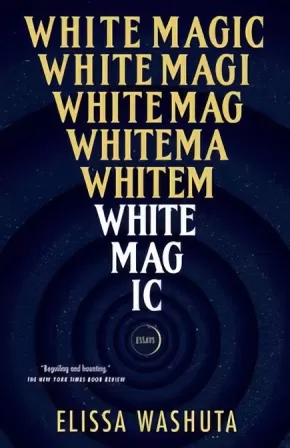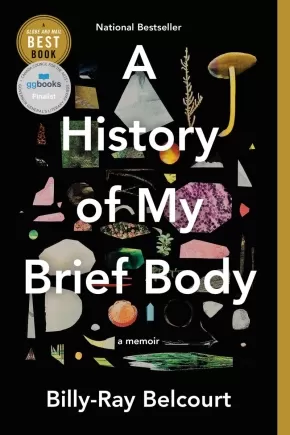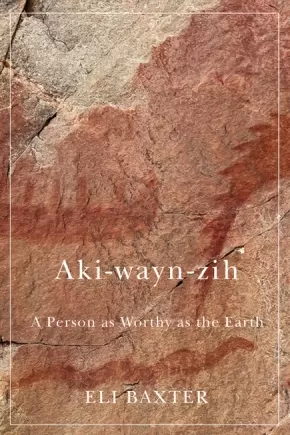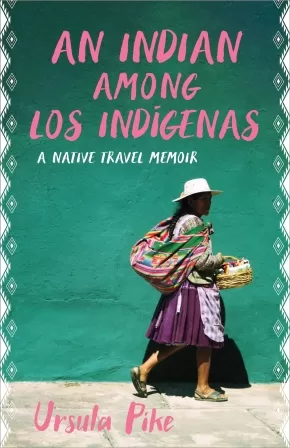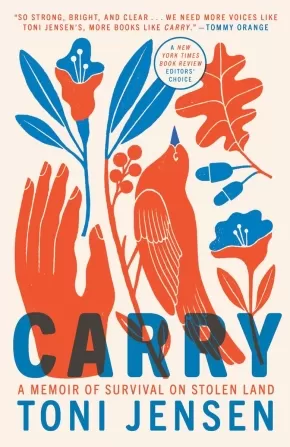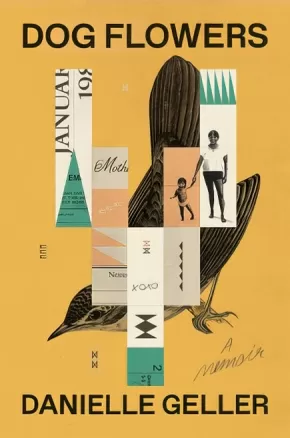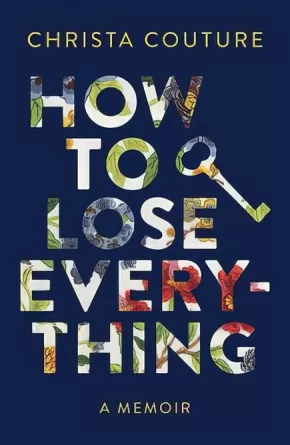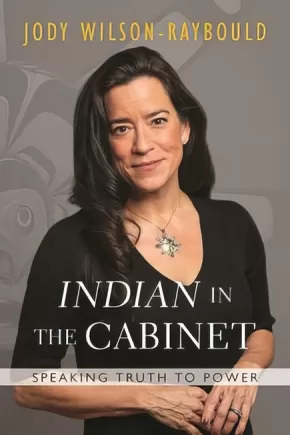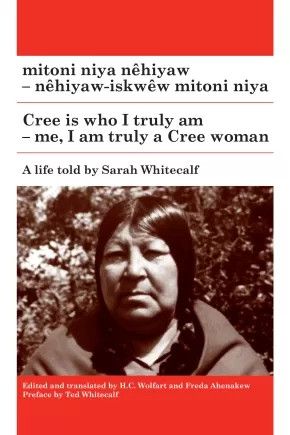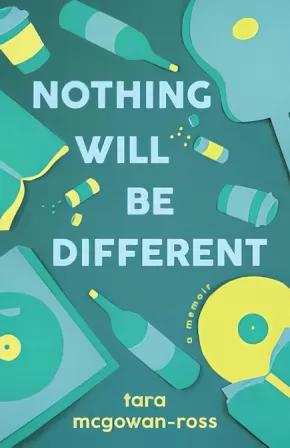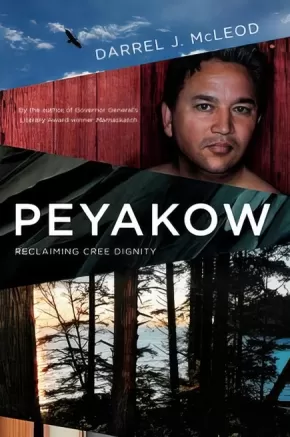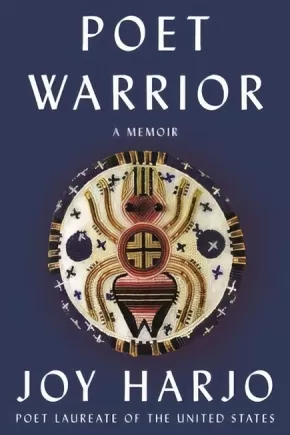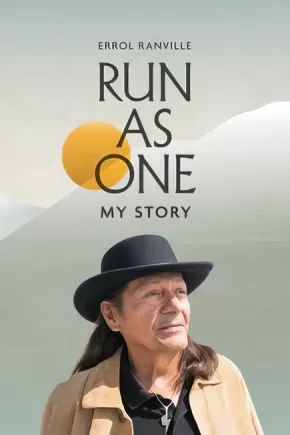Memoir
Synopsis:
Throughout her life, Elissa Washuta has been surrounded by cheap facsimiles of Native spiritual tools and occult trends, “starter witch kits” of sage, rose quartz, and tarot cards packaged together in paper and plastic. Following a decade of abuse, addiction, PTSD, and heavy-duty drug treatment for a misdiagnosis of bipolar disorder, she felt drawn to the real spirits and powers her dispossessed and discarded ancestors knew, while she undertook necessary work to find love and meaning.
In this collection of intertwined essays, she writes about land, heartbreak, and colonization, about life without the escape hatch of intoxication, and about how she became a powerful witch. She interlaces stories from her forebears with cultural artifacts from her own life—Twin Peaks, the Oregon Trail II video game, a Claymation Satan, a YouTube video of Stevie Nicks and Lindsey Buckingham—to explore questions of cultural inheritance and the particular danger, as a Native woman, of relaxing into romantic love under colonial rule.
Reviews
"A fascinating magic trick of a memoir that illuminates a woman's search for meaning." —Kirkus, Starred Review
"Washuta’s frank confrontations with, and acknowledgments of, unhealed wounds are validating. . . . evoking the sense of peeling open a letter from an estranged friend. A poignant work by a rising essayist."—Foreword Reviews, Starred Review
"Her prose is crisp and precise, and the references hit spot-on. . . . Fans of the personal essay are in for a treat."—Publishers Weekly
"Powerful. . . . Washuta’s essays refuse the mandate of a tidy resolution. Instead she circles around each subject, inspecting it as symbol, myth, metaphor, and reality, all while allowing her readers space to draw their own conclusions, or to reject the need for any conclusion at all. Like a stage magician, she asks readers to look again. White Magic is an insightful, surprising, and eloquent record of stories of magic and the magic in stories." —Booklist
"Washuta's story and struggles become a metaphor for the toll of colonialism on generations of Indigenous people like herself. Readers of recovery narratives, women's issues, and keenly observed social commentary will be rewarded here."—Library Journal
"White magic, red magic, Stevie Nicks magic—this is Elissa Washuta magic, which is a spell carved from a life, written in blood, and sealed in an honesty I can hardly fathom." —Stephen Graham Jones, author of The Only Good Indians
"White Magic is funny and wry, it’s thought-provoking and tender. It’s a sleight of hand performed by a true master of the craft. White Magic is magnificent and Elissa Washuta is spellbinding. There is no one else like her." —Kristen Arnett, author of Mostly Dead Things
"These pages are windows into a black lodge where Twin Peaks and Fleetwood Mac are on repeat—sometimes forward, sometimes backwards, sometimes in blackout blur. I stand in awe of everything here. What an incredible and wounding read."—Richard van Camp, author of The Lesser Blessed
Additional Information
Paperback
Synopsis:
A slim but electrifying debut memoir about the preciousness and precariousness of queer Indigenous life.
Opening with a tender letter to his kokum and memories of his early life on the Driftpile First Nation, Billy-Ray Belcourt delivers a searing account of Indigenous life that’s part love letter, part rallying cry.
With the lyricism and emotional power of his award-winning poetry, Belcourt cracks apart his history and shares it with us one fragment at a time. He shines a light on Canada’s legacy of colonial violence and the joy that flourishes in spite of it. He revisits sexual encounters, ruminates on first loves and first loves lost, and navigates the racial politics of gay hookup apps. Among the hard truths he distills, the outline of a brighter future takes shape.
Bringing in influences from James Baldwin to Ocean Vuong, this book is a testament to the power of language—to devastate us, to console us, to help us grieve, to help us survive. Destined to be dog-eared, underlined, treasured, and studied for years to come, A History of My Brief Body is a stunning achievement from one of this generation’s finest young minds.
Awards
- Winner of the Hubert Evans Non-Fiction Prize
Reviews
“Bursting with all the movements of sex, riot, and repose, this book presents us with a shock of recognition and reclamation, and we are better for it―punch drunk and aching but, oh, so much better. I’m gutted by his brilliant mind.” ―Cherie Dimaline
“Displays a pervading lucidity, akin to dreaming while standing wide awake, feet firmly on the soil . . . [A] fascinating exploration of the impact of colonialism in all its ramifications.” —Quill & Quire
Additional Information
192 pages | 5.01" x 7.50" | Paperback
Synopsis:
One man’s story of growing up in the hunting and gathering society of the Ojibways and surviving the residential school system, woven together with traditional legends in their original language.
Members of Eli Baxter’s generation are the last of the hunting and gathering societies living on Turtle Island. They are also among the last fluent speakers of the Anishinaabay language known as Anishinaabaymowin. Aki-wayn-zih is a story about the land and its spiritual relationship with the Anishinaabayg, from the beginning of their life on Miss-koh-tay-sih Minis (Turtle Island) to the present day. Baxter writes about Anishinaabay life before European contact, his childhood memories of trapping, hunting, and fishing with his family on traditional lands in Treaty 9 territory, and his personal experience surviving the residential school system. Examining how Anishinaabay Kih-kayn-daa-soh-win (knowledge) is an elemental concept embedded in the Anishinaabay language, Aki-wayn-zih explores history, science, math, education, philosophy, law, and spiritual teachings, outlining the cultural significance of language to Anishinaabay identity. Recounting traditional Ojibway legends in their original language, fables in which moral virtues double as survival techniques, and detailed guidelines for expertly trapping or ensnaring animals, Baxter reveals how the residential school system shaped him as an individual, transformed his family, and forever disrupted his reserve community and those like it. Through spiritual teachings, historical accounts, and autobiographical anecdotes, Aki-wayn-zih offers a new form of storytelling from the Anishinaabay point of view.
Reviews
"Aki-wayn-zih will educate not only Canadians but the world as to what my people went through during this tragic part of history. I recommend this book wholeheartedly, and I hope that it inspires our young people and the public to learn more about Indigenous Peoples, our history, and why we remain strong in our culture, our languages, our lands, and our nations." — David Paul Achneepineskum, Matawa First Nations
"Eli Baxter eloquently weaves us through his life on the land. This is not just a book, but also a record of Anishinaabay customs and beliefs. What also makes this an incredible treasure is the fact that it is expressed in the language. No doubt a language resource for many generations to come, the information in this book is sacred and will transform lives." — Isaac Murdoch, Onaman Collective
"I truly enjoyed reading this book: its way of storytelling drew me in from the opening page. Aki-wayn-zih sets up the storytelling approach of the Anishinaabay language, offering important teachings in a subtle way, and bringing in a strongly experientially grounded sense of the language and its importance for healing and connecting with the spirit of land relations." — Timothy Brian Leduc, Wilfrid Laurier University and author of A Canadian Climate of Mind: Passages from Fur to Energy and Beyond
"Aki-wayn-zih will help many North American settlers and immigrants understand the history of the Anishinaabay people and the land that now sustains all of us. This book is eloquent and well written and offers perspectives that range from supporting dominant narratives to providing important contrasting views. It is clearly the work of an articulate storyteller respected in and beyond his community." — Margaret Ann Noodin, University of Wisconsin–Milwaukee and author of What the Chickadee Knows
Additional Information
160 pages | 5.50" x 8.50" | 5 photos, 1 map | Hardcover
Synopsis:
A gripping, witty memoir about indigeneity, travel, and colonialism
When she was twenty-five, Ursula Pike boarded a plane to Bolivia and began her term of service in the Peace Corps. A member of the Karuk Tribe, Pike sought to make meaningful connections with Indigenous people halfway around the world. But she arrived in La Paz with trepidation as well as excitement, “knowing I followed in the footsteps of Western colonizers and missionaries who had also claimed they were there to help.” In the following two years, as a series of dramatic episodes brought that tension to boiling point, she began to ask: what does it mean to have experienced the effects of colonialism firsthand, and yet to risk becoming a colonizing force in turn?
An Indian among los Indígenas, Pike’s memoir of this experience, upends a canon of travel memoirs that has historically been dominated by white writers. It is a sharp, honest, and unnerving examination of the shadows that colonial history casts over even the most well-intentioned attempts at cross-cultural aid. It is also the debut of an exceptionally astute writer with a mastery of deadpan wit. It signals a shift in travel writing that is long overdue.
Reviews
“A brutally honest and badly needed story. . . Witty and clearly written, this memoir is a must-read, not just for Peace Corps volunteers, anthropologists, and others working in foreign lands, but for everyone—all of us finding ourselves in an ever increasing diverse and complex cultural landscape.”—Greg Sarris, author of How a Mountain was Made
“Ursula Pike's memoir is unlike any other I've read, with her perceptive, always-seeking, and lovely narrative voice. . . No one's written about the Peace Corps like this, with the details of food and family and landscape told through the vision of an Indigenous woman finding new stories in a deeply-rooted place miles from her own.”—Susan Straight
“In Ursula Pike’s perceptive and poignant debut memoir, a North American Indian woman knowingly enters the complex dynamics of voluntourism and discovers aspects about her own identity, colonialism, and comparative privilege while navigating the vivid landscapes and personalities of a small Bolivian community in the Andes.”—Chip Livingston, author of Crow-Blue, Crow-Black
“The Indigenous peoples Pike lived and worked with speak loudly from these pages, challenging many of us to check privileges we didn’t know we had, demanding the right to be complex, strong, and human. This book is all heart, all vulnerability, as a young California Indian woman makes family far from home.”—Deborah Miranda, author of Bad Indians: A Tribal Memoir
Additional Information
240 pages | 5.50" x 8.50"
Synopsis:
A son who grew up away from his Indigenous culture takes his Cree father on a trip to their family's trapline, and finds that revisiting the past not only heals old wounds but creates a new future.
The son of a Cree father and a non-Indigenous mother, David A. Robertson was raised with virtually no knowledge or understanding of his family’s Indigenous roots. His father, Don, spent his early childhood on a trapline in the bush northeast of Norway House, Manitoba, where his first teach was the land. When his family was moved permanently to a nearby reserve, Don was not permitted to speak Cree at school unless in secret with his friends and lost the knowledge he had been gifted while living on his trapline. His mother, Beverly, grew up in a small Manitoba town with not a single Indigenous family in it. Then Don arrived, the new United Church minister, and they fell in love.
Structured around a father-son journey to the northern trapline where Robertson and his father will reclaim their connection to the land, Black Water is the story of another journey: a young man seeking to understand his father's story, to come to terms with his lifelong experience with anxiety, and to finally piece together his own blood memory, the parts of his identity that are woven into the fabric of his DNA.
Reviews
“An instant classic that demands to be read with your heart open and with a perspective widened to allow in a whole new understanding of family, identity, and love.” — Cherie Dimaline
“When someone lives their life in a good way, the Haisla call them handsome people. David A. Robertson’s biography is the perfect example of someone who takes care with his words and speaks respectfully; he tackles identity and racism, family bonds and breaks, with nuance and honesty. The power of this approach makes Black Water an essential and timely book.” — Eden Robinson, bestselling author of The Trickster Trilogy
Additional Information
288 pages | 5.31" x 8.00" | Paperback
Synopsis:
Toni Jensen grew up around guns: As a girl, she learned to shoot birds in rural Iowa with her father, a card-carrying member of the NRA. As an adult, she’s had guns waved in her face near Standing Rock, and felt their silent threat on the concealed-carry campus where she teaches. And she has always known that in this she is not alone. As a Métis woman, she is no stranger to the violence enacted on the bodies of Indigenous women, on Indigenous land, and the ways it is hidden, ignored, forgotten.
In Carry, Jensen maps her personal experience onto the historical, exploring how history is lived in the body and redefining the language we use to speak about violence in America. In the title chapter, Jensen connects the trauma of school shootings with her own experiences of racism and sexual assault on college campuses. “The Worry Line” explores the gun and gang violence in her neighborhood the year her daughter was born. “At the Workshop” focuses on her graduate school years, during which a workshop classmate repeatedly killed off thinly veiled versions of her in his stories. In “Women in the Fracklands,” Jensen takes the reader inside Standing Rock during the Dakota Access Pipeline protests and bears witness to the peril faced by women in regions overcome by the fracking boom.
In prose at once forensic and deeply emotional, Toni Jensen shows herself to be a brave new voice and a fearless witness to her own difficult history—as well as to the violent cultural landscape in which she finds her coordinates. With each chapter, Carry reminds us that surviving in one’s country is not the same as surviving one’s country.
Reviews
“Like a murmuration of starlings, Toni Jensen’s new book Carry changes its shape constantly and effortlessly. . . . The value of Carry lies in its unique structure, its sparse, powerful prose, and in the stinging perspective it provides on events that are numbingly common. Until we see it as clearly as Jensen does, the lens she offers on gun violence in America will be relevant again and again and again.”—Chicago Review of Books
“In Carry, Jensen scours language to find a new way of writing about how historical injustices seep into the present. . . . With a controlled voice like a Philip Glass composition, smooth, meandering yet repetitive, Jensen considers her troubled past and begins the work of stitching herself back together. . . . An unsettling account that creeps into your bones.”—The New York Times Book Review
“Toni Jensen grew up around guns. But bird-hunting with her father was a much different experience than staring down bored barrels at Standing Rock. A new and much-needed voice, Métis author Jensen shares her deepest thoughts and most emotional experiences in Carry.”—Bustle
“Toni Jensen’s memoir is stunning. There’s no other words that come to mind—it’s about growing up Métis, existing as an Indigenous woman in America, and the looming threat of ever-pervasive gun violence. . . . A must-read.”—Alma (Alma’s Favorite Books for Fall 2020)
“Moving between personal recollections and historical observations, Jensen narrates what it means to be Métis, and what it feels like to be connected by bodies and land. . . . A meditative exploration of people and place that shows what it means to live and survive.”—Library Journal
“[A] debut memoir from a Native author enmeshed in the American way of violence, alienation, and death . . . a powerful rejection of a culture that has always been grounded in violence and intimidation.”—Kirkus Reviews
“Carry explores the gun’s tragic impact with heartfelt prose and deep intellect—on politics, on history, on Black and Indigenous bodies, on women’s bodies, and on children behind closed doors . . . It is full of difficult and vital news, delivered right on time.”—Terese Marie Mailhot, New York Times bestselling author of Heart Berries
Additional Information
304 pages | 5.24" x 7.94" | Paperback
Synopsis:
A daughter returns home to the Navajo reservation to retrace her mother’s life in a memoir that is both a narrative and an archive of one family’s troubled history.
When Danielle Geller’s mother dies of alcohol withdrawal during an attempt to get sober, Geller returns to Florida and finds her mother’s life packed into eight suitcases. Most were filled with clothes, except for the last one, which contained diaries, photos, and letters, a few undeveloped disposable cameras, dried sage, jewelry, and the bandana her mother wore on days she skipped a hair wash.
Geller, an archivist and a writer, uses these pieces of her mother’s life to try and understand her mother’s relationship to home, and their shared need to leave it. Geller embarks on a journey where she confronts her family's history and the decisions that she herself had been forced to make while growing up, a journey that will end at her mother's home: the Navajo reservation.
Dog Flowers is an arresting, photo-lingual memoir that masterfully weaves together images and text to examine mothers and mothering, sisters and caretaking, and colonized bodies. Exploring loss and inheritance, beauty and balance, Danielle Geller pays homage to our pasts, traditions, and heritage, to the families we are given and the families we choose.
Reviews
“Dog Flowers by Danielle Geller is a journey story we’ve never read before. Geller travels through snippets of her own life and that of her mother’s, creating a narrative where all roads lead to her mother’s home in the Navajo Nation. It’s an honest, intimate, and heart-wrenching memoir that explores fractured family, the damaging effects of alcoholism and poverty, and what it means to seek healing from legacies of trauma. This book gave me chills. Trained as a librarian and archivist, Geller has created a type of archive, a living collection of memories and documents that speak to a life that is at once precisely individualistic while also being universally resonant. Read this book.”—Kali Fajardo-Anstine, author of Sabrina & Corina
“Dog Flowers pulls the few remaining threads of an unraveled family life. This courageous, honest, desperate, tender, and compelling book tells a daughter’s story of her troubled mother. In Dog Flowers, we learn that a handful of threads can never reweave the blanket of family, or patch up what a mother’s abandonment has torn. What little we learn of Geller’s Navajo mother comes from collaged notes and journal entries, photographs and reportage; it’s a story full of gaps. Which is exactly what’s remarkable about this book: Geller does not seek to make anything whole but herself. She refuses to deal in the tropes of redemption and reconciliation—which just shows how much strength it takes not to judge another’s life or lie about it. Even her return to her mother’s Navajo Nation does not bring about an easy cultural reunion, although it does give us a satisfying sense that while an immediate family can fall apart, an extended family, a tribe, ties a tight web that might just hold.”—Heid E. Erdrich, award-winning poet, author, and editor of the award-winning New Poets of Native Nations
“A Navajo woman’s memoir of family, loss, and self-discovery. [Danielle Geller] takes readers on two parallel journeys: that of her mother, Laureen, who left the Navajo reservation at age nineteen, “almost as soon as she could,” and her own, which begins with her notifying her sister Eileen that their mother was dying. . . . After Laureen’s death, Geller collected her mother’s belongings, “packed into eight suitcases” and including “her diaries, her photos, and the letters she kept.” Using these personal items, the author expertly weaves her story into Laureen’s. . . . Geller’s mix of archival research and personal memoir allows readers to see a refreshing variety of perspectives and layers, resulting in an eye-opening, moving narrative. A deftly rendered, powerful story of family, grief, and the search for self.”—Kirkus Reviews
Additional Information
272 pages | 6.12" x 9.25" | 27 black & white photos | Hardcover
Synopsis:
For 34 years, Lynn Gehl fought against the sex discrimination built into Canada’s Indian Act. This is the story of her challenges and eventual success.
A follow-up to Claiming Anishinaabe, Gehl v Canada is the story of Lynn Gehl’s lifelong journey of survival against the nation-state’s constant genocidal assault against her existence. While Canada set up its colonial powers—including the Supreme Court, House of Commons, Senate Chamber, and the Residences of the Prime Minister and Governor General—on her traditional Algonquin territory, usurping the riches and resources of the land, she was pushed to the margins, exiled to a life of poverty in Toronto’s inner-city.
With only beads in her pocket, Gehl spent her entire life fighting back, and now offers an insider analysis of Indian Act litigation, the narrow remedies the court imposes, and of obfuscating parliamentary discourse, as well as an important critique of the methodology of legal positivism. Drawing on social identity and Indigenous theories, the author presents Disenfranchised Spirit Theory, revealing insights into the identity struggles facing Indigenous Peoples to this day.
Reviews
“Congratulations . . . to Dr. Lynn Gehl for her successful challenge of the Indian Registrar’s refusal to allow her to be registered under the Indian Act. . . . Good win, Lynn!”—The Honourable Murray Sinclair
“With knowledge and experience from years of advocacy before Parliament as well as the courts, and the depth of perception typical of all her scholarly work, Dr. Gehl assesses what more is needed before the Indian Act system can be truly egalitarian. Her book is unique and inspiring.” —Mary Eberts, from the foreword
“[R]emarkable . . . a monument in Indigenous struggles with the colonial Crown.” —Veldon Coburn, Institute of Indigenous Research and Studies at University of Ottawa
“Gehl embodies essential Indigenous wisdom, bravery, and responsibility in her work to dismantle the systems of colonial oppression. Her work serves as a beacon in a network of pathways for our people to make their way home.” —Chief Wendy Jocko, Algonquins of Pikwàkanagàn First Nation
“The legal decision in Gehl v Canada will have profound effects for the future, ensuring that hundreds of thousands of Indigenous mothers will be able to pass their status on to their children. This victory, the product of decades of struggle by Lynn Gehl, is chronicled here. Read it and learn!” —Bonita Lawrence, author of Fractured Homeland
Educator Information
This is the follow-up to Claiming Anishinaabe.
Centres Anishinaabe methods of personal truth over western academia.
Introduces readers to the paternity policy of the Indian Art, explaining how this policy was sexual discrimination and bloodless genocide. The paternity policy of the Indian Act required individuals claiming Status to demonstrate the lineage of both parents. Harmful to Indigenous mothers and children, and imposing a high evidentiary burden on Indigenous people claiming Status, it was overturned on April 20, 2017, in what is now known as the Gehl decision.
Additional Information
288 pages | 6.00" x 9.00" | Paperback
Synopsis:
Disability, death and divorce are part of a string of losses that leave this award-winning musician fundamentally changed as she learns to navigate her grief and find a way forward.
Christa Couture lost a piece of herself—in more ways than one. She lost a leg to amputation from childhood bone cancer. She lost a son to complications at birth. She lost another son to a heart defect. She lost a husband to divorce. Each of these losses has left her altered.
In her debut memoir, Couture relives these tragedies alongside the joys that fill the spaces in between. With a quiet wisdom, she explores the dichotomies of grief—how a dismantling necessitates growth, how trauma will at once harden and soften a person. Evoking Joan Didion’s The Year of Magical Thinking and Rachel Cusk’s A Life’s Work, How to Lose Everything reflects on the emotional and psychological experiences of motherhood, partnership and change.
Couture’s story is an offering of kinship to anyone touched by loss, be that the loss of a physical ability, the loss of a loved one, the loss of a relationship or the loss of one’s sense of self. With gentleness and generosity, How to Lose Everything bears witness to the shift in perspective that comes with grief, and how it can deepen compassion for others, expand understanding, inspire a letting go of little things and plant a deeper feeling for what matters.
Reviews
"Christa’s voice and the things that make her remarkable are so tangible in her narrative: it is bravely open, it is generous when retelling of great sadness, it is candid and kind, with a sharp and quick humour that sneaks up on you in the most delightful way, at the right time. " — Gabrielle Papillon, singer and songwriter
"An astoundingly generous and compelling memoir. I could not put this book down, and I know I will return to these stories over and over again. How to Lose Everything is for anyone who has ever lost someone; for you, perhaps, who have come to know grief; for all of us who have had to learn how to walk again, after falling to the ground." — Smokii Sumac, author of YOU ARE ENOUGH: LOVE POEMS FOR THE END OF THE WORLD
Additional Information
208 pages | 5.50" x 8.50"
Synopsis:
A compelling political memoir of leadership and speaking truth to power by one of the most inspiring women of her generation.
Jody Wilson-Raybould was raised to be a leader. Inspired by the example of her grandmother, who persevered throughout her life to keep alive the governing traditions of her people, and raised as the daughter of a hereditary chief and Indigenous leader, Wilson-Raybould always knew she would take on leadership roles and responsibilities. She never anticipated, however, that those roles would lead to a journey from her home community of We Wai Kai in British Columbia to Ottawa as Canada’s first Indigenous Minister of Justice and Attorney General in the Cabinet of then newly elected prime minister, Justin Trudeau.
Wilson-Raybould’s experience in Trudeau’s Cabinet reveals important lessons about how we must continue to strengthen our political institutions and culture, and the changes we must make to meet challenges such as racial justice and climate change. As her initial optimism about the possibilities of enacting change while in Cabinet shifted to struggles over inclusivity, deficiencies of political will, and concerns about adherence to core principles of our democracy, Wilson-Raybould stood on principle and, ultimately, resigned. In standing her personal and professional ground and telling the truth in front of the nation, Wilson-Raybould demonstrated the need for greater independence and less partisanship in how we govern.
"Indian” in the Cabinet: Speaking Truth to Power is the story of why Wilson-Raybould got into federal politics, her experience as an Indigenous leader sitting around the Cabinet table, her proudest achievements, the very public SNC-Lavalin affair, and how she got out and moved forward. Now sitting as an Independent Member in Parliament, Wilson-Raybould believes there is a better way to govern and a better way for politics—one that will make a better country for all.
Additional Information
352 pages | 6.00" x 9.00" | Hardcover
Synopsis:
Strong women dominate these reminiscences: the grandmother taught the girl whose mother refused to let her go to school, and the life-changing events they witnessed range from the ravages of the influenza epidemic of 1918–20 and murder committed in a jealous rage to the abduction of a young woman by underground spirits who on her release grant her healing powers.
A highly personal document, these memoirs are altogether exceptional in recounting the thoughts and feelings of a Cree woman as she copes with the challenges of reserve life but also, in a key chapter, with her loneliness while tending a relative’s children in a place far away from home – and, apparently just as debilitating, away from the company of other women. Her experiences and reactions throw fresh light on the lives lived by Plains Cree women on the Canadian prairies over much of the twentieth century.
The late Sarah Whitecalf (1919–1991) spoke Cree exclusively, spending most of her life at Nakiwacîhk / Sweetgrass Reserve on the North Saskatchewan River. This is where Leonard Bloomfield was told his Sacred Stories of the Sweet Grass Cree in 1925 and where a decade later David Mandelbaum apprenticed himself to Kâ-miyokîsihkwêw / Fineday, the step-grandfather in whose family Sarah Whitecalf grew up.
In presenting a Cree woman’s view of her world, the texts in this volume directly reflect the spoken word: Sarah Whitecalf’s memoirs are here printed in Cree exactly as she recorded them, with a close English translation on the facing page. They constitute an autobiography of great personal authority and rare authenticity.
Educator Information
Table of Contents
PART I Becoming a Cree woman
Ch. 1—êkosi nikî-pê-ay-itâcihonân / This has been our way of life
Ch. 2—êkosi nikî-tâs-ôy-ohpikihikawin / This is the way I was raised
Ch. 3—mêh-mêskoc nikî-pimohtahikawin / I was taken back and forth
Ch. 4—miton ê-kî-pê-na-nêhiyaw-ôhpikihikawiyân / I was truly raised as a Cree woman
PART II Being a Cree woman
Ch. 5—êwak ôm ê-kî-ay-itâcimisot awa nikâwiy / This is my mother’s own story
Ch. 6—iyikohk ê-kî-sôhkêpayik anima nipahtâkêwin / So horrible was that murder
Ch. 7—ê-nipahi-kâh-kaskêyihtamân / I was desperately lonesome
Ch. 8—pikw êkwa niya / Now I had to take charge
PART III The spiritual life
Ch. 9—ê-sîkâwîhcikêhk / Observing the mourning ritual
Ch. 10—manitow kâ-matwêhikêt / Where the spirits drum (I)
Ch. 11—manitow kâ-matwêhikêt / Where the spirits drum (II)
Ch. 12—manitow kâ-matwêhikêt / Where the spirits drum (III)
Additional Information
366 pages | 6.50" x 9.75"
Synopsis:
A neurotic party girl's coming-of-age memoir about learning to live before getting ready to die.
Tara has it pretty good: a nice job, a writing career, a forgiving boyfriend. She should be happy. Yet Tara can’t stay sober. She’s terrible at monogamy. Even her psychiatrist grows sick of her and stops returning her calls. She spends most of her time putting out social fires, barely pulling things off, and feeling sick and tired.
Then, in the autumn following her twenty-seventh birthday, an abnormal lump discovered in her left breast serves as the catalyst for a journey of rigorous self-questioning. Waiting on a diagnosis, she begins an intellectual assessment of her life, desperate to justify a short existence full of dumb choices. Armed with her philosophy degree and angry determination, she attacks each issue in her life as the days creep by and winds up writing a searingly honest memoir about learning to live before getting ready to die.
Reviews
"This delightful book, appropriately enough, works like your favourite mixtape. It's got everything you want, and somehow it all fits. The arrangement is unexpected but, in retrospect, seems obviously right. Here is softness and pain, intimacy and revulsion, flourishing and sickness. And McGowan-Ross just sounds so good." — Sasha Chapin, author of All The Wrong Moves
"Tara McGowan-Ross is an unpretentious poet and philosopher weaving together meaning from the pain, grief, heartache, as well as simple joy of being alive. Nothing Will Be Different is a meditation on amor fati: the love of fate, the love of what is. By being with all of it: trauma, profound loss, the reality of death, addiction, precarity, the gig economy, hard work, love both dizzying and secure, sex, and insatiable desire, Tara shows us that transformation comes not through a battle against what is, but from the willingness to be changed by it." — Clementine Morrigan, author of Love Without Emergency
Additional Information
240 pages | 5.50" x 8.50"
Synopsis:
Mamaskatch, Darrel J. McLeod’s 2018 memoir of growing up Cree in Northern Alberta, was a publishing sensation—winning the Governor General's Literary Award for Non-Fiction, shortlisted for many other major prizes and translated into French and German editions. In Peyakow, McLeod continues the poignant story of his impoverished youth, beset by constant fears of being dragged down by the self-destruction and deaths of those closest to him as he battles the bullying of white classmates, copes with the trauma of physical and sexual abuse, and endures painful separation from his family and culture. With steely determination, he triumphs: now elementary teacher; now school principal; now head of an Indigenous delegation to the UN in Geneva; now executive in the Government of Canada—and now a celebrated author.
Brutally frank but buoyed throughout by McLeod’s unquenchable spirit, Peyakow—a title borrowed from the Cree word for “one who walks alone”—is an inspiring account of triumph against unimaginable odds. McLeod’s perspective as someone whose career path has crossed both sides of the Indigenous/white chasm resonates with particular force in today’s Canada.
Reviews
"Bravo! A job well done. You, my friend, are a very good writer." — Tomson Highway, February 2021
"This is the story of the remarkable professional life of a remarkable man. Whatever he worked on, including such important government files as the Nisga’a and Dene land settlements, he started out and remained a fierce champion of Indigenous rights. Wherever he travelled, he carried with him his past, the joys and tragedies of his own family, and the dignity and courage of his Cree ancestors. The book is a story of triumph, made particularly moving because McLeod doesn’t hide the demons he wrestles with as a two-spirited and Indigenous man." — Lorna Crozier, author of Through the Garden, February 2021
"McLeod boldly reconnects and reflects upon decades of lived experiences from familial, Cree traditional life of living off the land, to a professional (ultimately international) life dedicated to Indigenous rights and wellbeing. By reconnecting stories torn apart by poverty, tragic deaths, racism, homophobia and bureaucratic white privilege, McLeod performs a sacred act." — Betsy Warland, author of Oscar of Between, February 2021
Additional Information
240 pages | 6.00" x 9.00" | 8-page photo insert
Synopsis:
Three-term poet laureate Joy Harjo offers a vivid, lyrical, and inspiring call for love and justice in this contemplation of her trailblazing life.
Joy Harjo, the first Native American to serve as U.S. poet laureate, invites us to travel along the heartaches, losses, and humble realizations of her "poet-warrior" road. A musical, kaleidoscopic, and wise follow-up to Crazy Brave, Poet Warrior reveals how Harjo came to write poetry of compassion and healing, poetry with the power to unearth the truth and demand justice.
Harjo listens to stories of ancestors and family, the poetry and music that she first encountered as a child, and the messengers of a changing earth—owls heralding grief, resilient desert plants, and a smooth green snake curled up in surprise. She celebrates the influences that shaped her poetry, among them Audre Lorde, N. Scott Momaday, Walt Whitman, Muscogee stomp dance call-and-response, Navajo horse songs, rain, and sunrise. In absorbing, incantatory prose, Harjo grieves at the loss of her mother, reckons with the theft of her ancestral homeland, and sheds light on the rituals that nourish her as an artist, mother, wife, and community member.
Moving fluidly between prose, song, and poetry, Harjo recounts a luminous journey of becoming, a spiritual map that will help us all find home. Poet Warrior sings with the jazz, blues, tenderness, and bravery that we know as distinctly Joy Harjo.
Additional Information
240 pages | 5.50" x 8.25" | 10 Photographs | Hardcover
Synopsis:
Errol Ranville has been running all his life: from chronic poverty and racism in rural Manitoba; a discriminatory music business; alcohol and drug addiction; and the responsibilities that come with being regarded as a role model. Though Errol has faced seemingly insurmountable barriers as an Indigenous performer in a predominately white music business, his band C-Weed & the Weeds released several #1 songs and went on to score JUNO nominations in 1985 and 1986. He was the recipient of the Lifetime Achievement Award at the Indigenous Music Awards in 2011. In his memoir Run as One, Errol embraces the role of trailblazer for the countless musicians that follow his path.
Reviews
"This is the story of how C-Weed became a legendary name in Indigenous music. Run As One traces the perseverance, heartbreak and inspiration that led Errol Ranville from extreme hardship to singing the soundtrack of so many of our lives." - Wab Kinew, author of The Reason You Walk
Additional Information
160 pages | 6.18" x 8.91"

